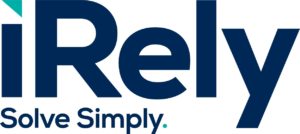Enhancing Security and Compliance in ERP and CTRM Software Solutions
Enterprise Resource Planning (ERP) and Commodity Trading and Risk Management (CTRM) software solutions play vital roles in modern businesses, facilitating efficient management of operations, finances, and supply chain processes. However, as the number of cyber threats continues to rise, it is imperative to ensure the security and compliance of these software solutions with appropriate policies, procedures, and system controls.
Current Cybersecurity Risks for ERP and CTRM Systems
How important is security for your company’s ERP and CTRM systems? These software solutions are the center of your operation. Proper controls, measures, and audits will help protect your business from risks such as:
- Supply-chain attacks: These attacks specifically target the software supply chain, posing a significant threat to ERP and CTRM systems. In the first quarter of 2021, the United States witnessed a 42% surge in supply-chain attacks, impacting millions of individuals.
- Legacy system vulnerabilities: Outdated software systems may harbor obsolete technologies and outdated software development standards, making them vulnerable to cyberattacks.
- Human vulnerabilities: Cybercriminals often exploit human vulnerabilities as a means to gain unauthorized access to sensitive data or systems. Employees, unintentionally or unknowingly, can become conduits for cyber threats. Human error is frequently identified as a primary factor in cybersecurity breaches.
- Evolving attack vectors: Cybercriminals are continuously evolving their attack strategies, adopting new and sophisticated methods to bypass security measures. Staying informed about the latest trends and advancements in cyber threats is essential to proactively protect ERP and CTRM systems.
Ensuring Data Privacy Regulation Compliance in ERP and CTRM Systems
Mitigating security risks can seem like a daunting responsibility. Fortunately, there are many tactics business leaders can take to reduce their risks. Some of the best practices recommended by cyber security experts include:
- Assessing your risks. Regularly conduct a complete risk assessment of critical access and business process controls to ensure data security mechanisms are aligned with your company’s policies and regulatory requirements.
- Reviewing your compliance program. Ensure all the components of your data privacy compliance program are documented and employees are adequately Assign the program’s oversight responsibility to a specific individual for accountability.
- Choosing qualified vendor Scrutinize your vendors for cybersecurity compliance. Implement software solutions that address data security risks at the storage, network, and application levels.
- Applying dynamic access governance for ERP access. This means setting controls and limits by person or role to prevent employees from having unnecessary access to confidential or sensitive data in screens or reports.
- Keeping proper Maintain relevant documentation to demonstrate regulatory compliance and readiness for audits.
- Staying updated with the latest data privacy rules and regulations. It is essential to understand the evolving landscape of privacy laws to ensure ongoing compliance with the standard requirements.
- Making data security part of your company culture. Maintain healthy security practices, including change management and compliance monitoring, to uphold data security in the long term.
iRely prioritizes software security so you can rest easy.
iRely knows data security is paramount to your operations. Our software uses the latest security protocol to protect your company from cyber-attacks and confidential data breaches.
>> iRely keeps the bad guys out with complete login security with the following:
- AES-256 encrypted passwords. Advanced Encryption Standard (AES) 256 is a virtually impenetrable symmetric encryption algorithm that uses a 256-bit key to convert your plain text or data into a cipher.
- Two-factor authentication using Google Authenticator to protect logins from new computers.
- Records of login history for auditing purposes.
- Ability to implement secure, customized password policies for length, characters, expirations, etc.
- reCAPTCHA is required after multiple invalid logins and locks the screen upon failure.
- Customizable limits and alerts for “off hours” logins.
- Customizable policies for different users.
- Inactive sessions are closed and locked after 30 minutes.
- Easily view users logged into the system and log users out if necessary.
>>iRely provides customizable permissions by user role to restrict access:
- Define permissions by user, role, or user group.
- Restrict access to screens, menus, and set controls.
- Assign multiple sub-roles to users as appropriate.
- Set screen permissions for no access, read only, add new records, or edit data.
>> iRely provides you with an audit trail for monitoring and compliance with the ability to access details and data change records for any user or record for audits and security Data change records include date, time, user, records created/ updated/deleted, field and grid data, and original and new values.
Are you ready to take your business to the next level?
Combine the power of ERP and CTRM for comprehensive and efficient commodity management. Manage all aspects of physical and financial trades – including risk, procurement, logistics, hedging, position, and P&L – in one, comprehensive commodity trade and risk management solution.
For more information on this article and how iRely can help your company improve processes and create efficiencies, go to iRely.com or reach out directly to Dylan.Gamboa@iRely.com.


Dylan Gamboa
Senior Vice President, Petroleum Distribution and Retail
412-592-8661
